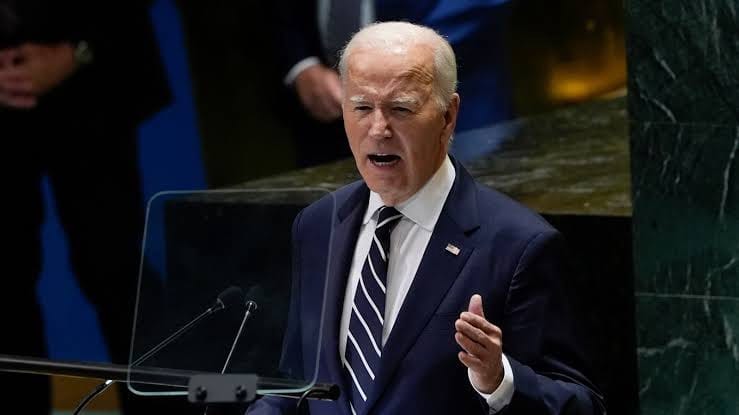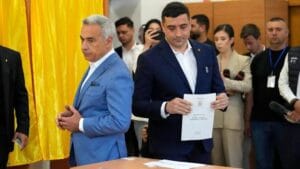Biden reflects on “remarkable sweep of history” in final UN address
President Joe Biden delivered his final speech to the United Nations General Assembly (UNGA) on Tuesday, marking the culmination of a decades-long political career anchored in foreign policy.

President Joe Biden delivered his final speech to the United Nations General Assembly (UNGA) on Tuesday, marking the culmination of a decades-long political career anchored in foreign policy.
Highlighting what he described as the “remarkable sweep of history” he has witnessed throughout his public service, Biden declared, “things can get better,” emphasizing the enduring potential for progress amid global challenges.
As world leaders gathered in New York for the 79th UNGA session, Biden’s address reinforced key themes that have defined his administration: unyielding support for Ukraine, the necessity of global cooperation, and a commitment to upholding the U.N. Charter. Notably, he urged leaders to prioritize their constituents over political longevity, stating, “some things are more important than staying in power.” This reflection comes as he prepares to step back from his reelection campaign, signaling a desire for new leadership to guide the nation forward.
“We must never forget who we’re here to represent,” Biden stressed. “We, the people. These are the first words of our Constitution, the very idea of America, and they inspired the opening words of our UN Charter. I’ve made the preservation of democracy the central cause of my presidency.” He acknowledged the weight of his decision not to seek a second term, asserting, “Being president has been the honor of my life… I love my country more. I decided after 50 years of public service, it’s time for a new generation of leadership to take my nation forward.”
Biden’s address also tackled the escalating tensions in the Middle East, where he expressed hope for a cease-fire and hostage negotiation agreement nearly a year after the devastating Hamas attack on Israel. He lamented the ongoing suffering of innocent civilians in Gaza, stating, “the world must not flinch” from the horrors witnessed since October 7. Addressing the broader regional conflicts, he remarked, “Full-scale war is not in anyone’s interest.”
As violence continues to unfold, with nearly 500 people reported killed in southern Lebanon due to Israeli strikes on Hezbollah targets, Biden described the situation as “delicate and dangerous,” highlighting the urgent need for diplomatic resolutions.
The ongoing war in Ukraine also remained a focal point of Biden’s address, as he rallied global support for the embattled nation, asserting that Russian President Vladimir Putin has “failed” in his objectives. “Ukraine is still free, and NATO is bigger, stronger, more united than ever before,” he declared, reinforcing America’s commitment to its allies.
In a world increasingly characterized by conflict and division, Biden concluded with a call to action: “My fellow leaders, I truly believe we’re at another inflection point in world history where the choices we make today will determine our future for decades to come. Will we stand behind the principles that unite us? Will we take on global challenges like climate change, hunger, and disease?”
As Biden prepares for a busy week of diplomacy—having recently met with leaders from Japan, Australia, and India, and set to meet Ukrainian President Volodymyr Zelenskyy—his final UNGA address serves as both a reflection on his presidency and a hopeful call for unity and cooperation in the face of pressing global challenges.










